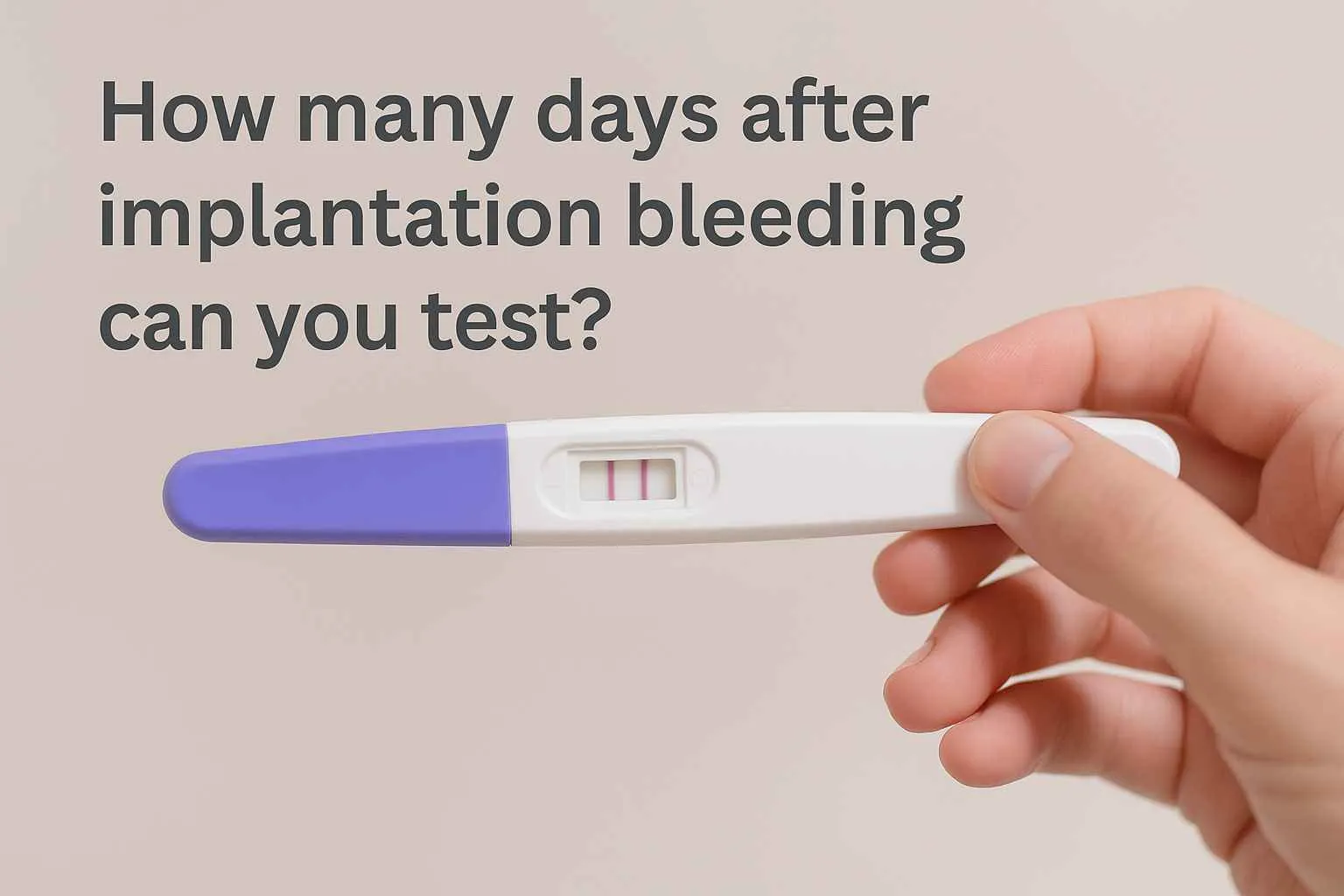Have you ever thought about when you might feel your baby move for the first time? This is known as "quickening" in pregnancy, and it is a huge milestone for most expectant mothers.The definition of quickening in pregnancy refers to when a mother first feel fetal movements. These can come in all forms, like a slight flutter or a gentle tap. It's a special thing, letting moms know that their babies are growing and getting more active.It's good to keep in mind while reading this that everyone experiences quickening differently because every person's body is different, and babies have different activity levels.Every woman will experience this at her own pace. When she does start to feel it, it'll be nice knowing that there is another life inside her womb growing safely.
Knowing the individual nature of this moment is critical; every mother-to-be will feel it on her terms based on her body and her baby’s activity level. It'll connect them with their baby in a way they've never felt before. And since every person feels it differently based on their unique situations, this is a sign of relief that the baby is healthy, too.Now, let’s dive deeper into what quickening in pregnancy feels like!
Also Read:From Conception to Birth: A Guide to Stage of Development of the Fetus
What Does Pregnancy Quickening Feel Like?
Quickening during pregnancy refers to feeling your little one move inside your belly for the first time! You can describe this feeling as butterflies fluttering around or bubbles popping. In the beginning, these movements might be so soft that you might be unable to tell if it's actually your baby moving or just your stomach making noises! You’ll start feeling stronger as they grow, such as nudges and rolls. Keep in mind, though, that some moms might feel these movements early on during quickening, while others might notice them at around 20 weeks!
Also Read:26th Week of Pregnancy: You Are Not Alone
How Does it Feel in Quickening Pregnancy 13 Weeks?
The experience of feeling your baby move, known as quickening, usually starts between 16 and 25 weeks, but it can vary. You might notice these movements around the 18- to 22-week mark if it's your first pregnancy.
For those who have been pregnant before, quickening pregnancy 13 weeks isn't uncommon, as they might recognize the feeling sooner. The period during which these movements are felt evolves as the baby grows, from gentle flutters to more pronounced kicking and moving. It's important to note that the experience of quickening and the timeline can vary significantly from one pregnancy to another.
What Should I Do If I Haven’t Felt My Baby Move Yet?
If you're around quickening pregnancy 16 weeks and haven't felt your baby move yet, there's usually no need for immediate concern. The timing of first feeling baby movements can vary greatly, and factors like the position of your placenta can affect when these movements are felt.
If you're worried, keep in mind that the baby's movements will become more apparent as your pregnancy progresses. However, if you're significantly beyond this timeframe and still not noticing movement or are concerned about the baby's activity level at any point, reaching out to your healthcare provider for guidance and reassurance is a wise step.They can offer advice, conduct checks if necessary, and provide peace of mind.
Also Read:LadiesAndBabies: Third Trimester of Pregnancy
When Do Baby Kicks Get Stronger?
Baby kicks become more noticeable and more substantial during the quickening pregnancy's second trimester. From 20 to 23 weeks, you may start to feel gentle kicks and repetitive movements, which increase in strength as the weeks go by. This is when the baby becomes more active, especially when you're relaxed in the evening.Movements become even more pronounced from 29 to 31 weeks, with stronger kicks and pushes as the baby starts running out of room. By 32 weeks, the baby's movements peak, becoming hard, strong, and powerful, continuing until birth.
Also Read:12th Week of Pregnancy: Key Changes and Symptoms
Does the Timing of Quickening Indicate the Health of the Pregnancy?
When quickening, pregnancy begins can differ significantly from one pregnant individual to another and doesn’t necessarily mean that there’s an issue with the pregnancy. Although it usually happens around 16 to 20 weeks into the pregnancy, quicker onset might occur in people who have been pregnant before as they’re familiar with what to expect.An anterior placenta may also muffle sensations, leading to later detection. Remember that an extensive range of normal exists, and how soon quickening starts doesn't directly relate to your baby's health.
Which Gender Kicks More on the Right Side?
It’s widely known that fetal movements, including kicking, can vary significantly in each pregnancy and aren’t necessarily related to gender.Babies move for many reasons—often because of their development and environment rather than their sex. Monitoring these movements is more about ensuring good health for your child than anything else.
Also Read:18th Week of Pregnancy: The Size of a Bell Pepper!
Can Quickening Give Clues About the Baby’s Personality or Activity Level?
The first movements felt around 16 weeks into your pregnancy are significant but don't provide clear hints about your baby's future personality or activity level. While solid and frequent movements could indicate an active infant, you shouldn’t make any predictions about their temperament or hobbies based on how much they're moving this early on.
Their current movement patterns show that they're developing as they should be at this stage. However, bonding by engaging with these early signs of life can help you feel closer before your child is born.
How to Differentiate Quickening from Gas or Other Abdominal Sensations?
Feeling your baby's first movements is one of the most exciting things about pregnancy. This usually starts happening around the pregnancy's second trimester. However, it can be hard to differentiate these early movements from gas bubbles popping.
You might feel both as gentle pops or tiny flutters and sometimes pass quickly without returning. But fetal kicks are more constant than gas bubbles, which only happen once or twice every few hours.As you progress in your pregnancy and your little one grows, their movements will become more robust and more distinct, making it easier for you to tell the difference between quickening fetal movements and anything else going on down there.
How Can Partners and Family Members Participate in This Phase?
Partners and family members are critical during quickening pregnancy since it’s when most women will feel their baby's first movements. This time can be both exciting and anxiety-inducing as new physical experiences arise along with emotional ones.
Family support can make a huge difference in how the pregnant person feels, reducing stress, depression, and anxiety while improving physical health and lowering the risk of pregnancy and birth complications. A supportive environment offers connection, belonging, and emotional comfort, especially reassuring during uncertain or scary times.
Final Thoughts
Every woman's experience with quickening is different. Some might feel these movements early on and very obviously, while others may not notice them until later and much more subtly. No matter how or when you experience it, quickening is an exciting part of the pregnancy journey that brings you closer to your growing child.If you’re worried about your baby's movements or if it takes significantly longer for you to notice quickening than others, don't hesitate to consult your healthcare provider—they can offer reassurance and make sure everything’s going smoothly in your pregnancy.
अक्सर पूछे जाने वाले प्रश्नों
What is Quickening During Pregnancy?
Quickening during pregnancy is the moment when a pregnant person first feels the fetus's movements. These movements are often described as fluttering sensations or light, bubble-like feelings inside the womb.
When Can You Expect a Quickening Pregnancy 13 Weeks?
Quickening pregnancy 13 weeks is early for most, but some experienced mothers might start to notice faint movements or flutters around this time. However, feeling these movements later is more common, typically between 16 to 25 weeks.
How is Quickening in Pregnancy Recognized?
Quickening in pregnancy is recognized by the unique sensation of fetal movement. Initially, these movements might be mistaken for gas or stomach rumbles but soon become more distinct as gentle kicks, rolls, or flutters.
Is Quickening Pregnancy 16 Weeks Common?
Yes, quickening pregnancy 16 weeks is a standard time for many pregnant individuals to start feeling fetal movements, especially for those who have been pregnant before. First-time mothers may notice these sensations a bit later.
What to Expect with a Quickening Pregnancy Second Trimester?
During the quickening pregnancy second trimester, most pregnant people will begin to feel their baby's movements more distinctly. The sensations of quickening may evolve from faint flutters to more noticeable kicks and nudges as the fetus grows.

लेखक




